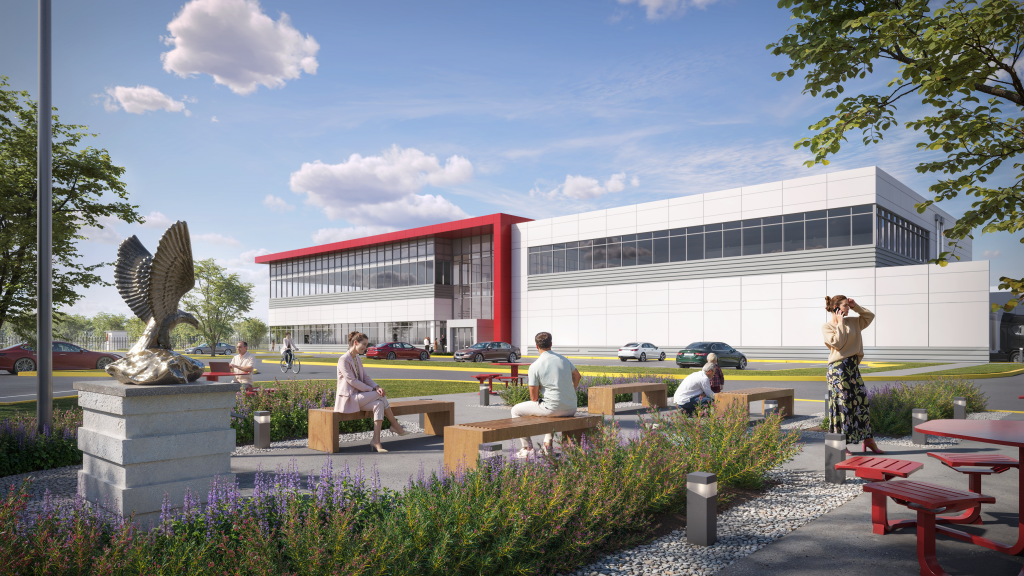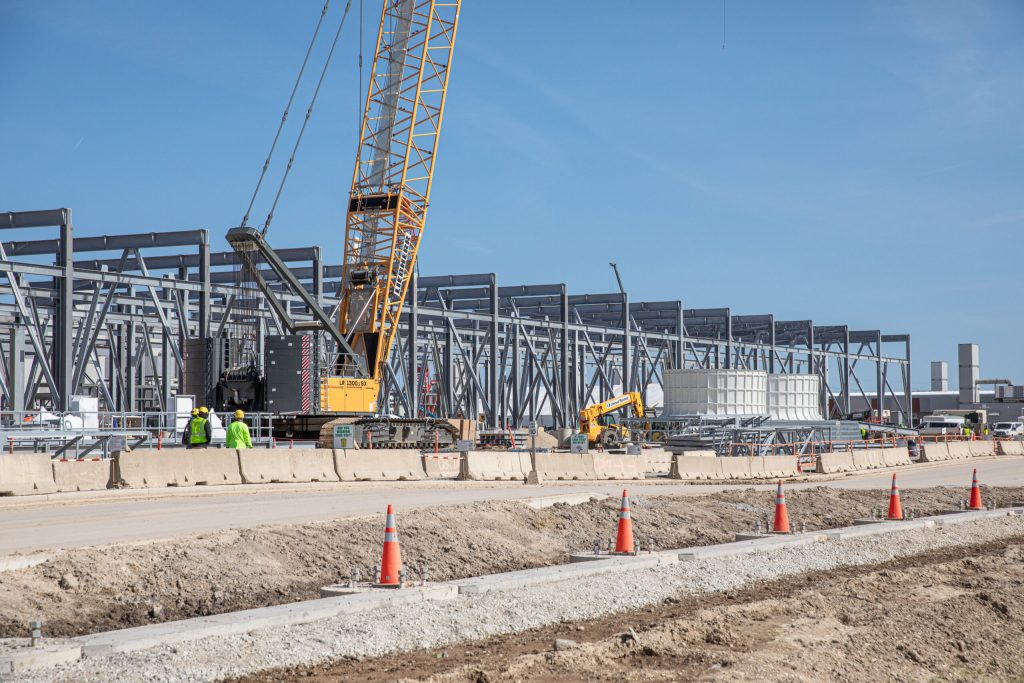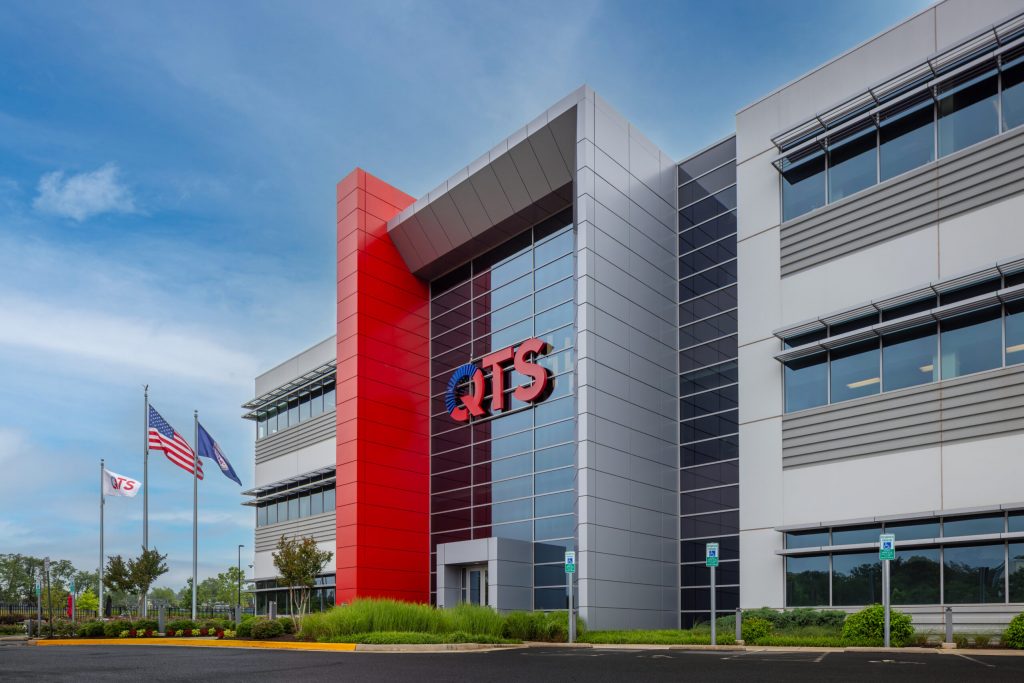Developer Wants to Build Data Center Campus in Dane County
Huge project could include up to 15 buildings constructed over next decade.
A Kansas-based developer is looking to build a data center campus in Dane County that could see as many as 15 buildings constructed over the next decade.
The plan calls for initial construction of three to five buildings. The project could generate more than 1,000 construction jobs while the campus is being built out, according to QTS Data Centers, the company eying the development.
Tag Greason, the company’s co-chief executive officer, said it’s looking to build the campus in the town of Vienna in Dane County. He said the company began to consider developing in Wisconsin after working with Alliant Energy on a separate project in Iowa.
“In that relationship, we were made aware of their ability to deliver power in Wisconsin,” Greason said. “Then we said, ‘OK, let’s start to look at opportunities that would meet the land requirements and the workforce requirements.’ And we were able to identify some land in Vienna.”
In addition to an established relationship with the local power company, he said the University of Wisconsin-Madison and the area’s “skilled workforce” made the county an attractive location.
He also said the company’s early discussions with officials in the town of Vienna have been supportive.
Town Board chair Jerry Marx did not respond to requests for comment Tuesday regarding the company’s preliminary plans. Town Board supervisor Dakota Cable declined to comment, saying talks are still very preliminary.
Melissa McCarville, a spokesperson for Alliant Energy, said via email that QTS is “in a due diligence process in Vienna, Wisconsin, as they evaluate potential sites for growth and expansion.”
QTS has a community engagement meeting scheduled Thursday evening at the Vienna Town Hall Shop and Lot.
If the company moves forward with the project, Greason said each building would require around $300 million to $350 million of investment. He said investment from end-users, the companies renting data center space and putting computer equipment inside, could be “somewhere between three and five times that amount.”
“My expectation is three or four buildings. That’s probably easy,” he said. “Fifteen buildings over 10 years, that’s the goal. That’s a lot of money when you start to add up the capital investment into the community.”
A spokesperson for QTS said via email that it’s too early to know exactly how much power would be needed to support the utility’s plans in Vienna.
But the first phase of the Microsoft’s data centers in Mount Pleasant is expected to use 450 megawatts annually, enough electricity to power more than 300,000 homes. Another project in Port Washington could use 3.5-gigawatts. For context 1 gigawatt is the equivalent of 100 million LED light bulbs or around 876,000 homes.
McCarville with Alliant Energy said in an email that the utility is committed to “supporting the needs of future customers” while enabling growth across the communities it serves.
“Growth, especially large load growth, will play an important role in keeping all customer bills stable as fixed costs can be spread out over a larger customer base,” the email read. “We understand the critical role that reliable, efficient and sustainable energy plays in supporting data centers and the technology-driven economy.”

This is a conceptual rendering of a QTS data center for illustrative purposes only. Photo courtesy of QTS Data Centers
Data center projects are in various stages of development across Wisconsin. Microsoft is building a data center campus in Mount Pleasant with additional plans for Kenosha County.
Another company, using the alias of Degas LLC, is pursuing a data center project in Beaver Dam. The Wisconsin Economic Development Corp. earlier this year approved allowing that company to access a sales tax exemption available only to data centers. The agency declined to provide the name of the company behind Degas, but in April, Bloomberg reported it’s the social media company Meta, the parent of Facebook and Instagram.
Cloverleaf Infrastructure had been prepping a data center project in Port Washington. A spokesperson for Cloverleaf said the company sold the project to Denver-based Vantage Data Centers. Mark Freeman, vice president of global marketing for Vantage Data Centers, said via email the company is in the early stages of planning a data center campus in Port Washington.
“The project will employ thousands of individuals throughout construction and operations and bring a positive economic impact to the area,” Freeman said.

Construction is ongoing on the first phase of Microsoft’s data center project in Mount Pleasant on March 11, 2025. Photo courtesy of Microsoft
The flurry of data center announcements in Wisconsin has led to concerns that the developments will result in state electric utilities investing in fossil fuel power plants instead of renewable energy, delaying efforts to address climate change. We Energies has already gotten approval from utility regulators to build a pair of new natural gas plants in southeast Wisconsin to meet projected load growth.
There’s also concerns surrounding water usage related to cooling data centers. Google’s U.S. data centers consumed an estimated 12.7 billion liters of fresh water in 2021, according to the University of California, Riverside.
“Depending on what the customer needs, we may want a refrigerant, or we may actually want the closed loop,” Greason said.
The company says those methods save more than 48 million gallons of water annually in the operation of each data center.
While some have been critical of data centers, Wisconsin’s construction industry hopes they’ll be a boon for employment.
“It’s been a huge boost in the arm for all the contractors that do this kind of work, and the building trades,” said Robb Kahl, executive director for the Madison-based Construction Business Group.
Developer looks to build data center campus in Dane County was originally published by Wisconsin Public Radio.
If you think stories like this are important, become a member of Urban Milwaukee and help support real, independent journalism. Plus you get some cool added benefits.























Yes, the new data centers use just teaspoon of water (and sometimes an ice cube) and the AI generates its own power using its massive, massive brain power. You would be stupid not to build as many data centers as you could!
Meanwhile NOAA data shows that all greenhouse gases in the atmosphere are still increasing despite all our half assed efforts to fight climate change. Good luck to all the kiddos out there!